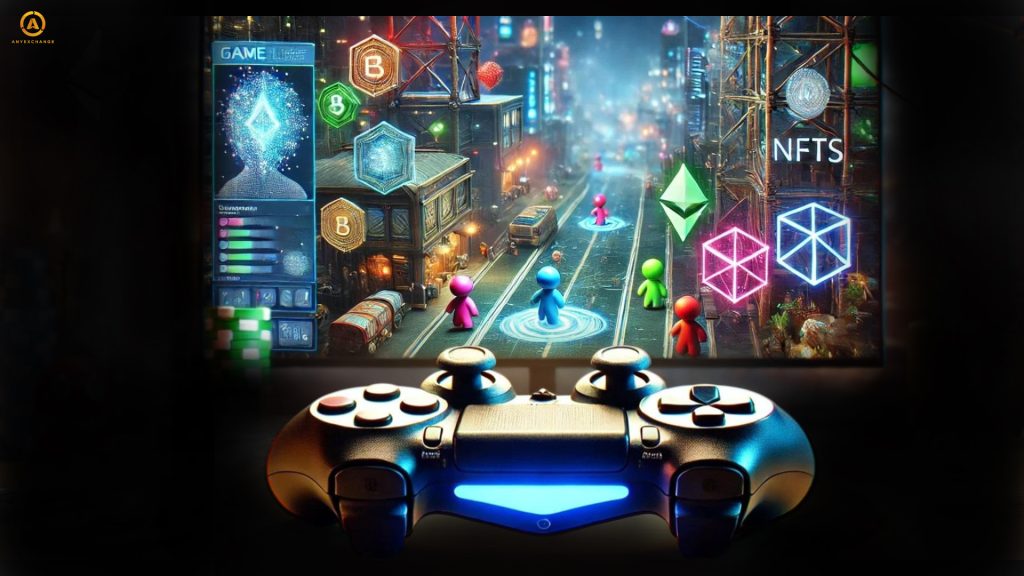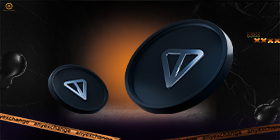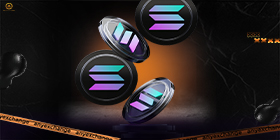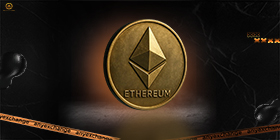
It is the “play to earn” principle that attracts users to blockchain games. We have been taught that in traditional online games, you either have to watch ads or pay for subscriptions, licensed versions, accelerated progression, or in-game items. And you don’t get anything in return except a good time. But blockchain gaming is different: the user is both having fun and earning money.
In this article you will learn how blockchain games work, what their advantages and disadvantages are, as well as how to earn money in cryptocurrency games.
What are blockchain “play to earn” games?

Decentralized blockchain games are an evolutionary branch of traditional game models. They integrate blockchain technology into their core mechanics, offering a unique combination of gameplay, economics, and ownership. Their main difference from traditional games is the ability to truly own in-game items, assess their value, and sell them (both in-game and out-of-game).
Traditional games are usually based on the principle of pay-to-play, while the concept of crypto-gaming is play-to-earn (P2E). The use of blockchain technology as an integral part of the game infrastructure provides ample opportunities for monetization during gameplay, turning it into a way to make money.
First of all, users have access to a tool such as tokenization of game assets via NFT. This means that a player can confirm ownership of an asset at any time through an immutable entry in a distributed ledger. These ownership rights are unique in that they can be sold or used for other purposes outside of the parent gaming platform. This means that game assets such as game progress levels, game items (e.g. land, structures, characters, weapons, etc.) can gain real value through tokenization. And the NFT, which is the proof of ownership of this value in the gaming industry, can be used by the player at his or her discretion: for purposes of sale, exchange, or demonstration, both in the game itself and on third-party platforms or marketplaces.
In this way, virtual game assets acquire real value expressed in money (or are monetized). This is the main innovative advantage of blockchain games.
In traditional, centralized games, the interests of the owners are paramount, not those of the users. A server can be shut down at any time, or a player can be banned by the administration without explanation. Game mechanics can be unfair to the player, and complaints against developers go unaddressed. The decentralized nature of blockchain gaming eliminates all of the above factors, providing players with a fair environment with transparent revenue opportunities.
Blockchain benefits for players

- True ownership, control and management of property. By tying in-game achievements, avatars, items or objects to in-game currency, they can be given value and attributes of ownership. Users can withdraw their assets at any time. If the development of the blockchain game stops, the right to dispose of the tokenized assets remains with the user. Traditional games do not have this advantage – in them, the player is essentially given a license to temporarily dispose of them.
- Trading opportunities. The economics of blockchain games rely on the convenience of transactions, which is an integral part of decentralized projects. The gaming industry and cryptocurrencies are closely related to each other, providing players with ample opportunities to conduct financial transactions with digital property (exchange, withdrawal in fiat, renting, investing, staking, and other operations). Thus, monetization in blockchain games creates a secondary economy from which the player can make money.
- Fair rules. Substantial changes are made only after approval by the majority of participants, and the fairness of the rules is guaranteed by encoding them in smart contracts. It is impossible to change the rules of the game without consensus.
- Interoperability. The best blockchain games for making money offer high interoperability with other blockchains, increasing the applicability of game capital and enabling more revenue generation with DeFi tools. Also, connecting to shared ecosystems or meta-universes with other game projects allows users to have a unique and more immersive gaming experience.
- Democratization. Investing in gaming blockchain projects, or being a high-level player, gives the opportunity to influence game development policies through management tokens. Players also have the right to submit proposals for voting. The mechanisms of democratic governance of the project create all possibilities for its development and improvement.
- Transparency and security. Decentralized storage and cryptographic methods used in distributed ledger technology provide security in blockchain gaming. All transactions are recorded and assets are stored on the blockchain, protected by the technology itself from hacking or other unauthorized access. Players only need to ensure that their personal private keys are stored securely. The verifiability of in-game events and transaction history increases trust in blockchain gaming projects.
Disadvantages of Blockchain Gaming
- The youth and lack of popularity of the technology. Blockchain games are still in their development stage, competing with powerful traditional projects that have monopolized the gamification sector and invested billions in development and promotion.
- Technological barriers. Both the development and use of blockchain games require specialized knowledge or skills. The team must be made up of experienced professionals, and the user must have at least a basic understanding of how a cryptocurrency wallet works, how an NFT is created, or how a trade transaction is made on the blockchain.
- Scalability. Gaming projects share a common problem in the blockchain technology sector: a lack of scalability. At peak times, blockchain games are not always able to maintain the necessary bandwidth, causing the platform to slow down, games to “stall,” and transaction costs to increase.
- Primitive game mechanics. Not all blockchain games can boast exciting gameplay or stunning 3D graphics. Developers are aware that this is the main problem today and are actively addressing it.
- Weaknesses in the economics of games. Some game projects are unable to provide users with an efficient and balanced token economy that allows them to make quick profits in accordance with the time and resources spent.
- Regulatory uncertainty. Blockchain games are likely to be far from the first to receive the attention of regulators once clear legislation on digital assets is formed. However, one way or another, such projects carry the risk of the cryptocurrency sector being in a “gray area” due to the current uncertainty of the legal field.
- Volatility risks. Cryptocurrencies and game tokens are subject to price fluctuations. Additional price spikes can be caused by artificial hype around individual games or NFT collections, making it difficult to truly assess the value of the assets.
- Fraud. The high profitability of the blockchain sector is attracting hackers and fraudsters, who are using increasingly sophisticated phishing and cyber attacks that target both the platform and individual players.
How to start playing blockchain games

There shouldn’t be any difficulties here. Read reviews of popular blockchain games and choose one you like. You’ll find the likes of Cryptokotties, Mythereum, CryptoZombies and Axie Infinity, as well as decentralized meta-universes Decentraland and The Sandbox as some of the most popular. Next, you’ll need a cryptocurrency wallet to manage in-game currency and other digital assets associated with the game. After these simple steps, you’ll enter the game by following the game’s guide and advice from the gaming community.
How to make money with blockchain games

In addition to earning through the play-to-earn gameplay by earning rewards in the form of in-game tokens, you can also earn income using the following tools:
- Selling NFTs. NFT rewards can be sold on crypto exchanges or specialized marketplaces. The more unique and functional the in-game asset (avatar, item, or object), the higher its market value.
- Staking. Many decentralized games have the functionality to generate passive income through staking or farming. By blocking tokens for a period of time while participating in such mechanisms, you can earn rewards in the form of tokens or other valuable assets.
- Participate in tournaments and contests. Some projects reward participation in group or individual contests. Experienced players can earn substantial rewards for winning high-stakes, high-enrollment events.
- Affiliate and referral programs. This is basically the classic “bring a friend and get a bonus” scheme.
- Investment in blockchain game tokens. Investing in the tokens of projects, in the prospects of which you are sure, you can get a decent income. Investing in successful projects in the early stages will bring the highest returns.
- Content Creation. Creative people with specific skills, especially in design and programming, can earn money by developing new characters or other game components to sell.
The Future of Gamification with Blockchain
Although decentralized gaming is still very young and imperfect, the impact of blockchain on the gaming industry is inevitable. The potential is too great. And the integration of blockchain technology with exciting gaming practices and the concept of meta-universes will bring the best results.
Let’s take a look at the trends we can expect in the foreseeable future:
- The development of metaverses. The concept of virtual worlds includes interactive virtual game spaces that are connected to the real world and interact based on blockchain technology.
- A growing gaming community. A fair and democratic gaming environment, where the ultimate beneficiary of the process is the user and not a third party centralized corporation, will attract more and more users. Players will realize all the benefits of getting a fair return from games.
- Emergence of new monetization tools. As the ecosystem evolves and new genres are created, the list of revenue-generating scenarios will expand.
- Increased competition. The largest traditional studios, which are still keeping a low profile, will feel the potential of blockchain and start integrating decentralized tools into their projects.
Thank you for your attention. Play for fun and profit!
AnyExchange is a cryptocurrency exchanger through which you can safely convert digital assets into electronic and cash money at the most favorable exchange rates. Our platform also offers fast and anonymous money transfers worldwide.






